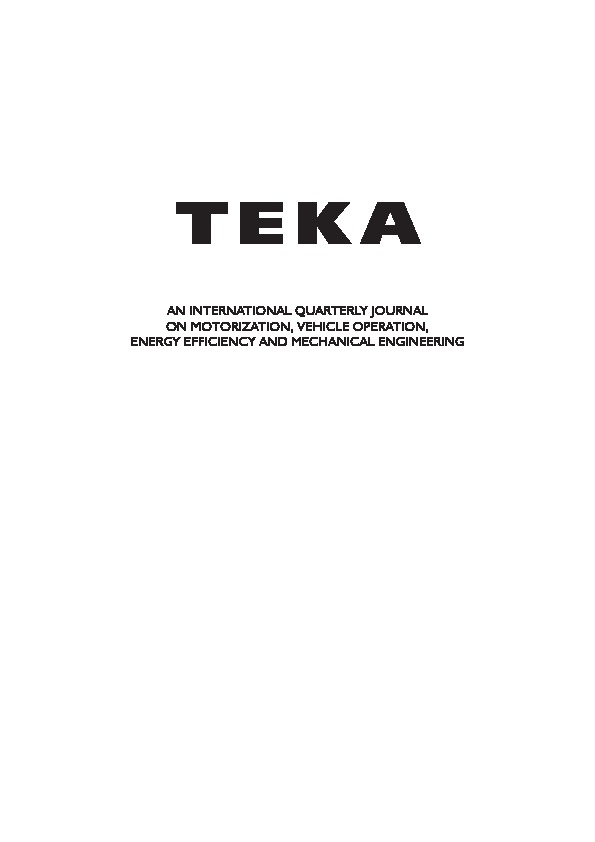id: 21036
Title: Research and Determination of Effective Parameters for Acoustic Technological Environment
Authors: Bernyk I.
Keywords: technological environment, the model performance sound, efficient options, viscosity, velocity of wave energy intensity
Date of publication: 2019-09-13 15:32:56
Last changes: 2019-09-13 15:32:56
Year of publication: 2019
Summary: The application of different models that take into account the rheological properties of the medium under the action of the load. The estimation
methods of acoustic processing technology environments, dispersing, emulsification, dissolution, homogenization, degassing, extraction. They are
dominant in the processing technology of dispersed media. It is noted that the effectiveness of processes determined by the parameters of ultrasonic action physical properties of the medium. Investigated parameters of acoustic apparatus, which realize the transfer of energy to the environment. Special
attention is devoted to studies conducted assessing the impact on the viscosity of the medium flow acoustic parameters of the process. The possibility of using two physical models: frequency-dependent and frequency
independent. Analytical dependence for determining the effect of viscosity of the medium on parameters of acoustic flow process. Found that the viscosity
decreases with increasing maximum radius of cavitation bubbles. This is an important result. It confirms the need to consider the viscosity as a key
parameter that significantly affects the energy cavitation process. For energy technology approach viscosity dispersion medium can provide a
comprehensive measure of the dissipation of mechanical energy or mechanical energy dissipation degree of cavitation environment. Scattering energy in
cavitation field affects the formation of cavitation bubbles region, stages of development, slamming, leads to an increase in ambient temperature. Indicated that the absorption coefficient characterizes the change in specific energy and intensity ultrasound in exposed environments. It is considered the absorption coefficient criterion for evaluating the effectiveness of the process of processing the acoustic environment.
Evaluation of elastic-inertial properties of the environment in the process flow cavitation caused by accurate knowledge propagation velocity of sound.
Experimental studies have established numerical value of the speed of sound propagation in different rheological properties. Changing the speed of wave
propagation and a sharp drop in density due to the formation of cavities in the environment leads to a substantial reduction of its impedance, which
accounted for at-assigned parameters and modes cavitation device. Research has identified the need to consider a mathematical model of the environment at the stage of (development stage) cavitation field as a system with distributed parameters. Changing the speed of wave propagation and a sharp drop in density due to the formation of cavities in the medium leads to
a significant reduction of its impedance, which accounted for at-assigned parameters and modes cavitation device. Research has identified the need to
consider a mathematical model of the environment at the stage of (development stage) cavitation field as a system with distributed parameters. Changing the
speed of wave propagation and a sharp drop in density due to the formation of cavities in the environment leads to a substantial reduction of its impedance, which accounted for at-assigned parameters and modes cavitation device. Research has identified the need to consider a mathematical model environment during formation (development stage) cavitation field
as systems with distributed parameters.
URI: http://socrates.vsau.edu.ua/repository/getfile.php/21036.pdf
Publication type: Статті у зарубіжних наукових фахових виданнях (Copernicus та інші)
Publication: TEKA. An International Quarterly Journal on Motorization, Vehicle Operation, Energy Efficiency and Mechanical Engineering. Lublin-Rzeszow. - 2019. - Vol. 19, No 1. - Р. 65-77. - Закордонне видання.
In the collections :
Published by: Адміністратор
File : 21036.pdf Size : 1928572 byte Format : Adobe PDF Access : For all

| |
|
|